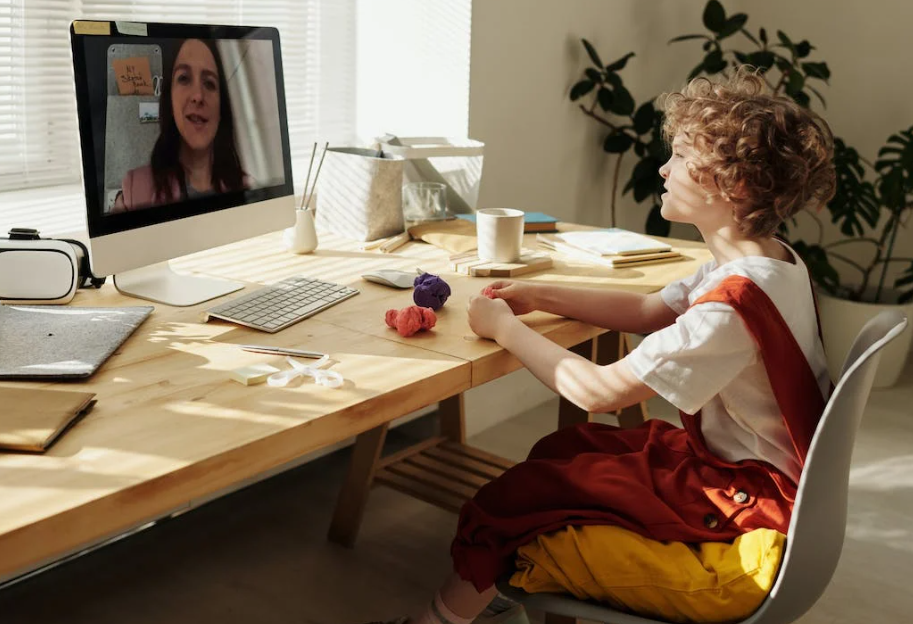No matter how bright a student is, s/he will reap the advantages of education only if he knows the art of listening in the classroom. You see, teachers usually give direct oral instructions in class. Then, they provide clarification on selected topics as required.
Students who listen actively to all the lectures and directions tend to perform better in their academic assignments. They also come out to me as more informed and confident individuals in the long run.
The time has come when online and offline teachers should involve the art of listening in their study curriculum. Stay with us as we shed some light on this concept.
Relevance of Learning the Art of Listening
A good listener can pave the way for success in any sphere of life. Here are the benefits of learning this skill in the early developmental years.
Better Communication Skills
Classroom interaction is a vital part of the entire educational setup. Students discuss their concerns with the teachers and present their ideas, questions, and thoughts. So, the students participating in this discussion or listening to another teacher-student interaction often have good communication skills.
They know the ideal vocabulary to use in a classroom. Moreover, they also know how to present their opinions in front of everyone in the classroom. So, when the students speak on the classroom podium in an informal setting, it improves their soft skills. It also prepares them to take center stage during public speaking and other formal occasions.
Better Performance

Students who listen carefully to the instructions given by their online tutor usually perform better in academic projects and assessments. Do you know how? Because they can instantly start their exercise or project without wasting time asking questions and clarifying doubts with the teacher.
It will also encourage them to multiply their efficiency and reduce silly errors. Better listening will help students complete their tasks on time with minimum bottlenecks. This habit can further help improve the students’ time management skills. Keep reading as we discuss it in the next subhead.
Improved Time Management Skills
Do you know that listening skills can directly impact a student’s time management skills? If they listen carefully, they can handle their deadlines efficiently. Moreover, submitting projects on time will also improve their academic scores.
Experts consider it a great way to help slow-learner children. They can become bright and intelligent students in the long run if they start paying attention to what their teachers are explaining. Therefore, students should start learning the art of listening from the younger classes.
Enhanced Academic Understanding
It is seen that students who carefully listen to the classroom lectures better understand the subject matter. It will help them store and retrieve information in their minds for longer. Students can solve complex problems by recalling the instructions and explanations given by the teacher in the classroom.
This technique is especially beneficial in studying subjects like mathematics and science. Moreover, it will also help students improve their skills for the next class. After all, good listeners are better prepared to connect to new content and ideas.
Improved Interpersonal Skills

It is high time students understand the importance of interpersonal skills in improving their academic life. Students who actively listen to their teachers or online tutors tend to develop better interpersonal skills than non-active listeners. Teachers also feel valued and respected when students reciprocate effectively and are open to pouring in inputs and suggestions.
It will improve the image of the students in the school. Teachers will recognize them for their active involvement in the classroom. This word-of-mouth appreciation will make them popular for extra-curricular events like plays, debates, and anchoring.
Effective Problem-Solving Skills
Listening is the key to problem-solving. Students who carefully listen to their teachers usually are better at solving complex problems than others. Do you know why? Because they paid attention to every detail discussed and explained in the classroom.
So, while solving a complex problem, students will recall the logic and steps explained by the teacher. This way, the chances of mistakes will be minimal here. Moreover, the chances of having correct outcomes are high. In the long run, good listening skills can make students become effective problem solvers for employers.
Activates Experiential Learning
Do you know why Math is difficult for many students? Failing to pay attention in the classroom is one of the biggest reasons. It is where experiential learning comes into the picture. The concept of experiential learning has been gaining momentum lately.
It is the process of learning by doing. Students who indulge in hands-on learning experiences generally excel in mathematics. They connect better with the theories and incorporate the knowledge gained into real-life situations.
The students who want to ace this learning should first learn the art of listening. It will help them grasp concepts faster and display higher creativity in their projects. This process also allows them to reflect on their academic records and improve their attitude toward learning. Teachers should focus on improving the students’ listening skills to gain the best results from experiential learning.
Helps in Memorizing Vocabulary
Public speaking is an art that students who aim to become good leaders in the future should try to learn as soon as possible. Besides reading books, active listening skills can help them ace this skill effectively. In addition, listening to eminent public figures and grasping their vocabulary is a great way to refine presentation skills.
Moreover, they can learn many new and impactful words from their teachers that will enrich their vocabulary in the long run. Finally, making meaningful and thoughtful sentences will help them come out as a more informed and well-educated individual in the future.
Takeaway
Both teachers and parents should encourage students to learn the crucial skill of listening. A person who listens carefully tends to make lesser mistakes, makes informed decisions, and solves problems more effectively. They are better time managers and experiential learners. Such students are more confident in their actions and perform well in their academic assessments.

